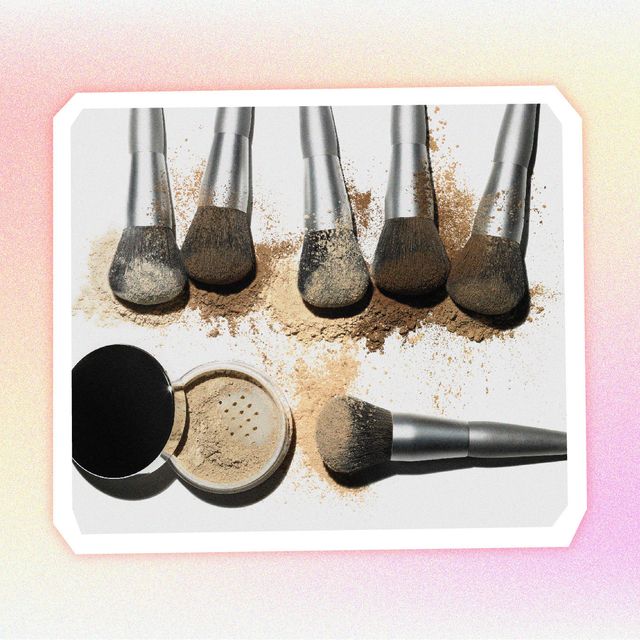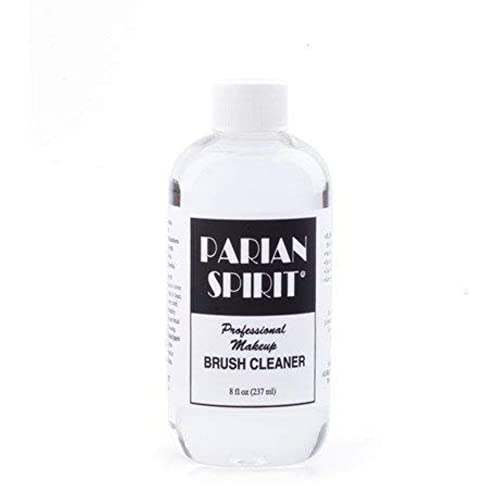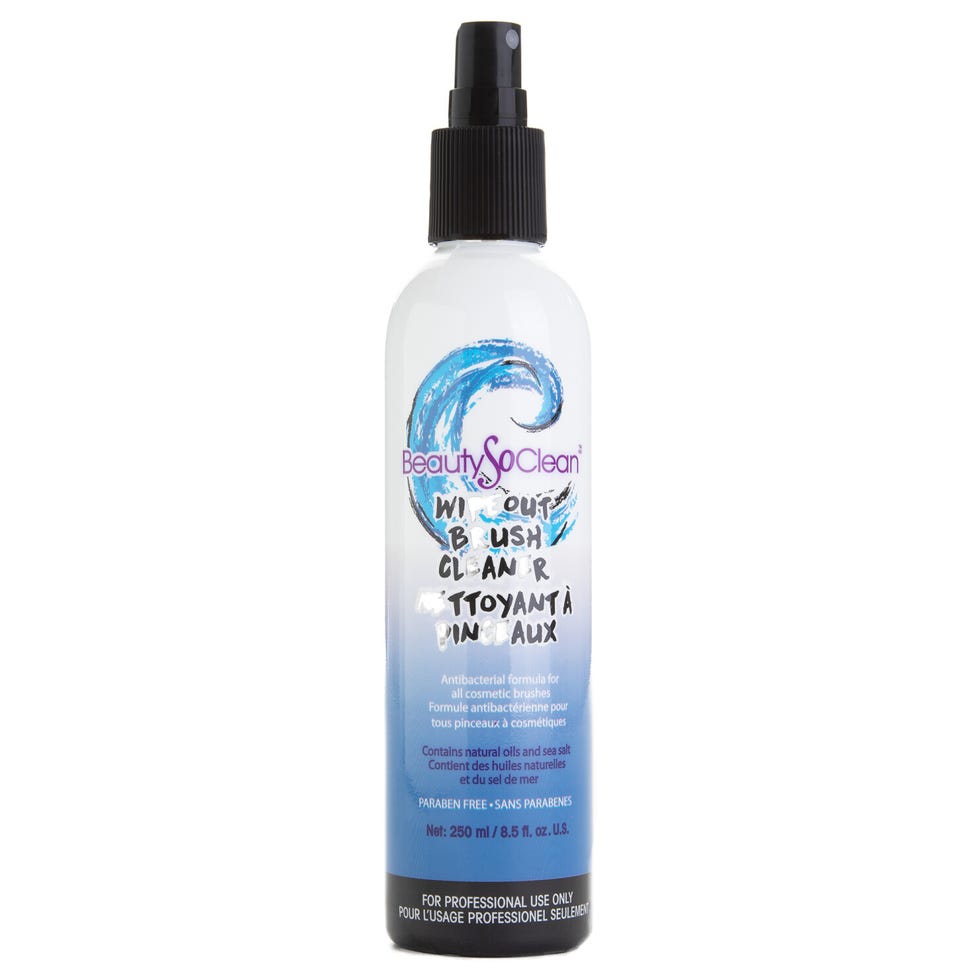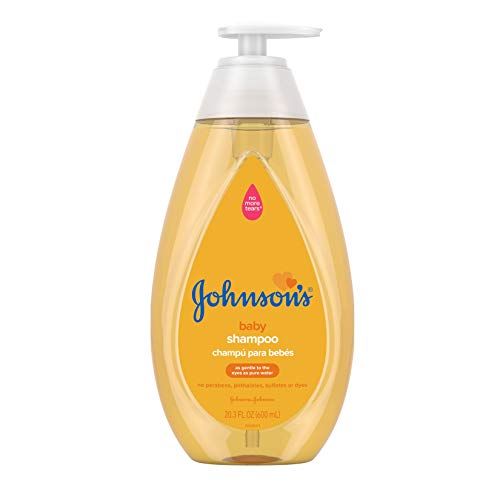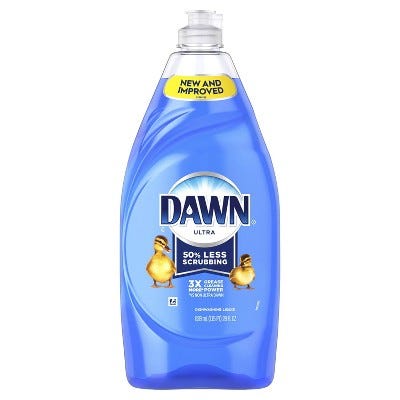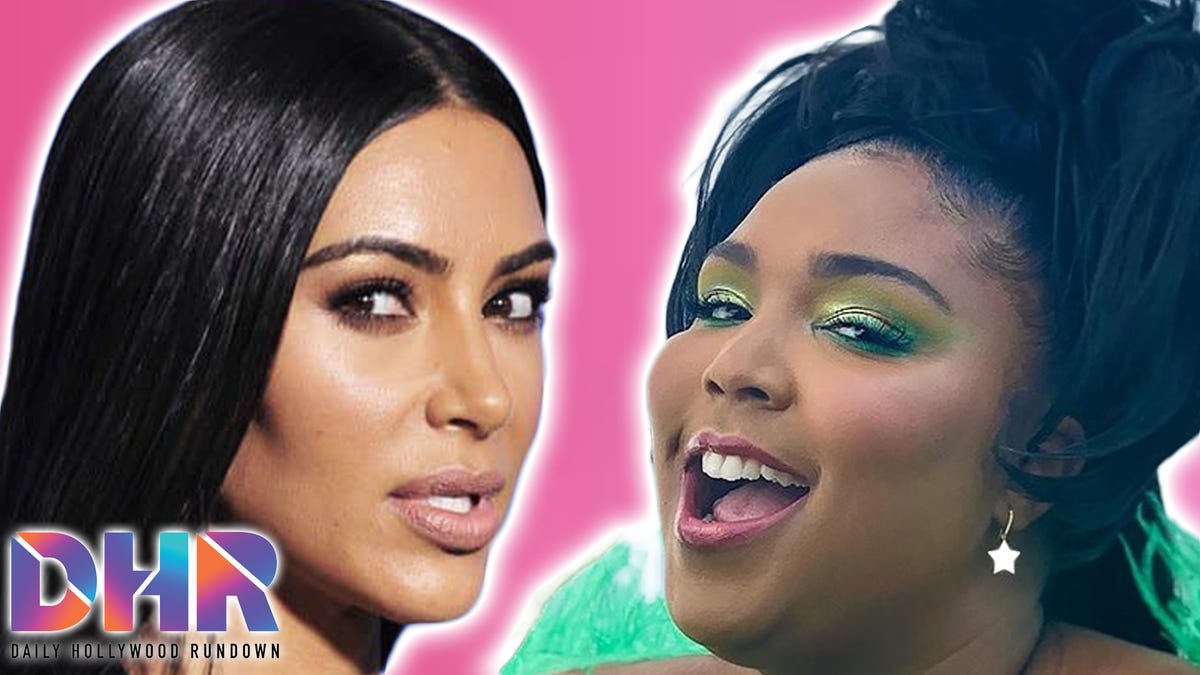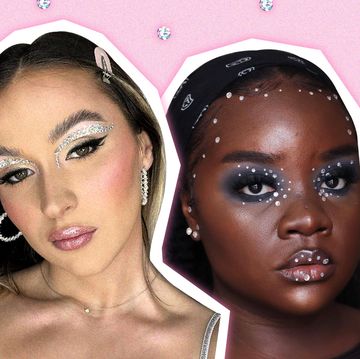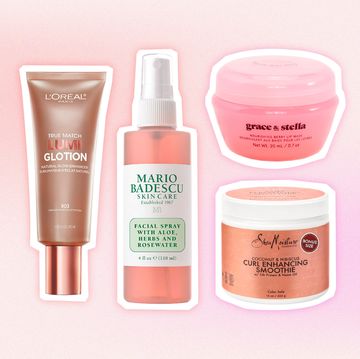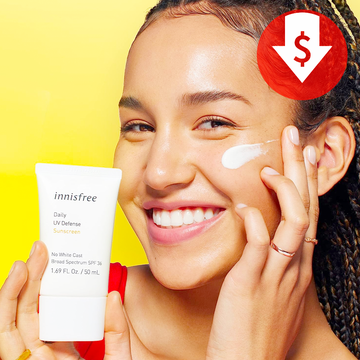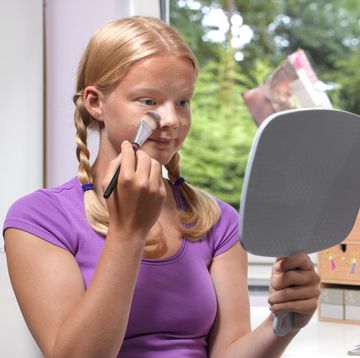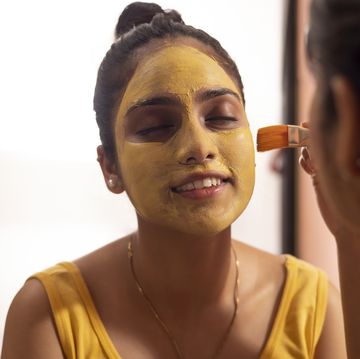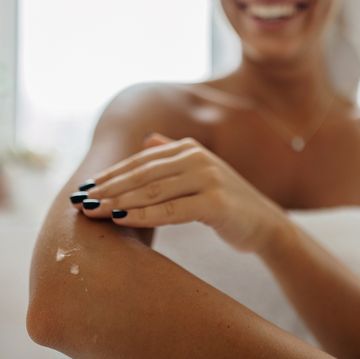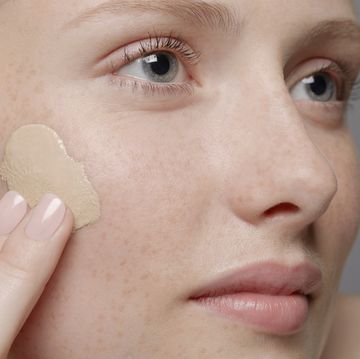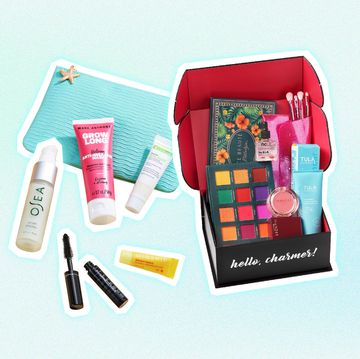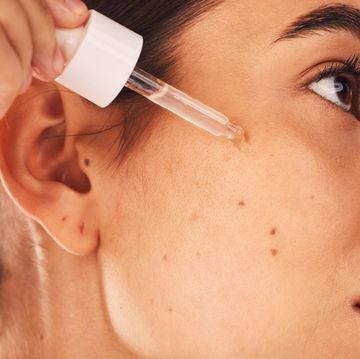Your favorite beauty influencers and celebs can probably name their favorite makeup brush by name or number and recognize the difference between an eyeshadow brush and a kabuki brush. No matter if you hardly ever wear makeup or if you paint your face every day, make sure that your makeup brushes are thoroughly cleaned regularly. Yes, thoroughly. Think about it for a sec. When was the last time you cleaned your makeup brushes? If the answer is longer than a few weeks, then you need to get right to it. Board-certified dermatologist Dr. Aanand Geria and celebrity makeup artist Sebastien Tardif spilled the tea to Seventeen on why it's important to keep brushes fresh and shared the best tips on how to clean makeup brushes.
How often should you clean your makeup brushes and beauty sponges?
When it comes to beauty in general, most rules are based on the circumstance. In this case, Tardif suggests examining how frequently you use your brushes and what you use them for. The Veil Cosmetics co-founder advises washing your brushes once a week if you use it to apply one product daily. On the other hand, if you use multiple products with cream and other waterproof makeup formulas, when you apply makeup with one brush, Tardif recommends cleaning it every time. When it comes to beauty sponges, the makeup pro suggests washing them two to three times per week since they need to be damp to work best and are more susceptible to harboring and spreading bacteria.
What's the best way to clean makeup brushes?
As daunting as it may seem, especially when you have tens of makeup brushes, you can clean them in a few simple steps. Brands like Anisa Beauty created a brush cleaning duo to gently wash away dirt and build-up from your go-to brushes. Tardif prefers gentle household cleansers like Dawn dish soap and Johnson's Baby Shampoo. He suggests professional-grade cleansers Parian Spirit Wipes or Beautysoclean Wipe Out, if you're in a rush.
First, combine one part shampoo with four parts warm water and dip the bristle into the solution. Next, gently massage the brush against the palm of your hand, rinse, and repeat until the water runs clear. After your brush is clean, Tardif recommends squeezing out the excess water and shaping the brush's bristles to prevent them from drying with a "bad hair day." Once that's done, lay the brush flat hanging off the edge of a countertop, and allow it to dry. Tardif recommends cleaning your brushes at night so they can air dry completely by the time you need to use them the next day. Allowing your brush to dry completely is important because wet brushes are more susceptible to bacteria like mold and mildew. Once your brushes are fully dry, Tardif suggests spraying 70% rubbing alcohol onto a paper towel and rubbing the brush against it to seal and sterilize the bristles.
What are the side effects of not cleaning makeup brushes?
It's so easy to put off cleaning your makeup brushes for later, but your skin's health lowkey depends on it, regardless if you experience regular breakouts or not. "Infrequent makeup brush cleaning causes bacterial build-up, contributing to skin irritation, breakouts, and clogged pores." When breakouts and blemishes enter the chat, there's always the possibility of leaving behind hyperpigmentation, so that's another reason to clean your makeup brushes, as suggested. Plus, there are even bigger consequences to using grimy tools. "Dirty makeup brushes can also lead to viral infections such as pink eye or cold sores," Dr. Geria adds. So, if you've noticed new breakouts after applying your makeup, "dirty brushes may be the culprit." Along with lasting impacts on the skin, dirty makeup brushes can decrease "the performance of the brush" and disrupt its "intended application" if product build-up accumulates in the brush's hair fibers.
When should you replace old makeup brushes?
As much as you love your trusted makeup brushes, you need to replace them now and then. There's no set time limit on how often you should replace your brushes, but Tardif says that you should throw your old ones away when you notice the bristles begin to shed heavily or if they lose their shape.

Jasmine Washington is an Assistant Editor at Seventeen, where she covers celebrity news, beauty, lifestyle, and more. For the past decade, she has worked for media outlets, including BET, MadameNoire, VH1, and many others, where she used her voice to tell stories across various verticals. Follow her on Instagram.
